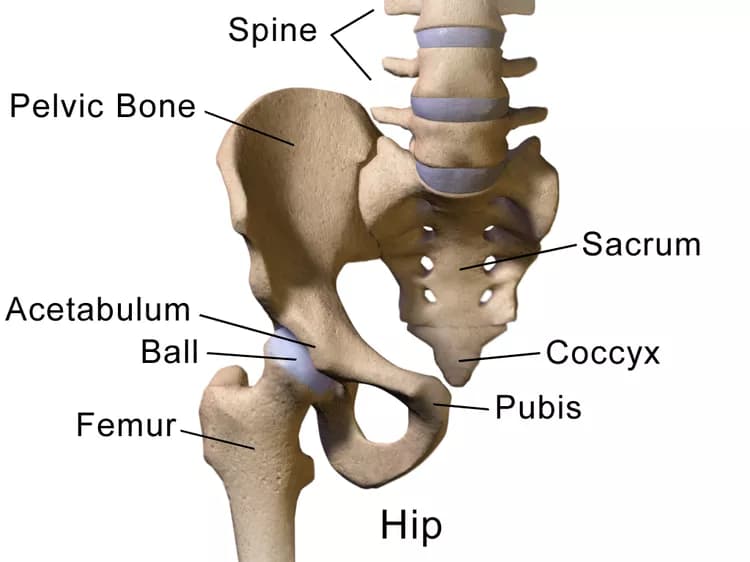
Childhood Obesity A Major Link To Hip Diseases
New research from the University, published in the Archives of Disease in Childhood journal, shows a strong link between childhood obesity and hip diseases in childhood.
Significant hip deformities affect around 1 in 500 children. Slipped Capital Femoral Epiphysis (SCFE) is the most common hip disease of adolescence. The condition always requires surgery, can cause significant pain, and often leads to a hip replacement in adolescence or early adulthood.
Children with a SCFE experience a decrease in their range of motion, and are often unable to complete hip flexion or fully rotate the hip inward. Unfortunately many cases of SCFE are misdiagnosed or overlooked, because the first symptom is knee pain, referred from the hip. The knee is often investigated and found to be normal. Early recognition of SCFE is important as the deformity may worsen if the slip remains untreated.
Factors explored
In an effort to identify children at higher risk of this condition researchers from the University's Institute of Translational Medicine, led by National Institute of Health Research (NIHR) Clinician Scientist and Senior Lecturer in Orthopaedic Surgery Daniel Perry, examined hospital and community based records to explore factors associated with SCFE, and explanations for diagnostic delays.
All of the records examined were of individuals under 16-years-of-age with a diagnosis of SCFE and whose electronic medical record was held by one of 650 primary care practices in the UK between 1990 and 2013.
Using the height and weight of children recorded in the notes at some point before the disease was diagnosed the researchers were able to identify that obese children appear at highest risk of this condition.
The study was funded by the Academy of Medical Sciences.
Best evidence
Daniel Perry, who is also an Honorary Consultant Orthopaedic Surgeon at Alder Hey Children's Hospital, said: "This is the best evidence available linking this disease to childhood obesity -- which makes this condition to be one of the only obesity-related disease that can cause life-long morbidity starting in childhood.
"A significant proportion of patients with SCFE are initially misdiagnosed and those presenting with knee pain are particularly at risk.
"Ultimately this study helps us to better understand one of the main diseases affecting the hip in childhood. Whilst we confirm a strong association with obesity, we are still unable to say that obesity causes this disease."
Materials provided by University of Liverpool. Note: Content may be edited for style and length.
Disclaimer: DoveMed is not responsible for the accuracy of the adapted version of news releases posted to DoveMed by contributing universities and institutions.
Primary Resource:
Perry, D. C., Metcalfe, D., Costa, M. L., & Van Staa, T. (2017). A nationwide cohort study of slipped capital femoral epiphysis. Archives of Disease in Childhood, archdischild-2016. DOI: 10.1136/archdischild-2016-312328
Related Articles
Test Your Knowledge
Asked by users
Related Centers
Related Specialties
Related Physicians
Related Procedures
Related Resources
Join DoveHubs
and connect with fellow professionals

0 Comments
Please log in to post a comment.